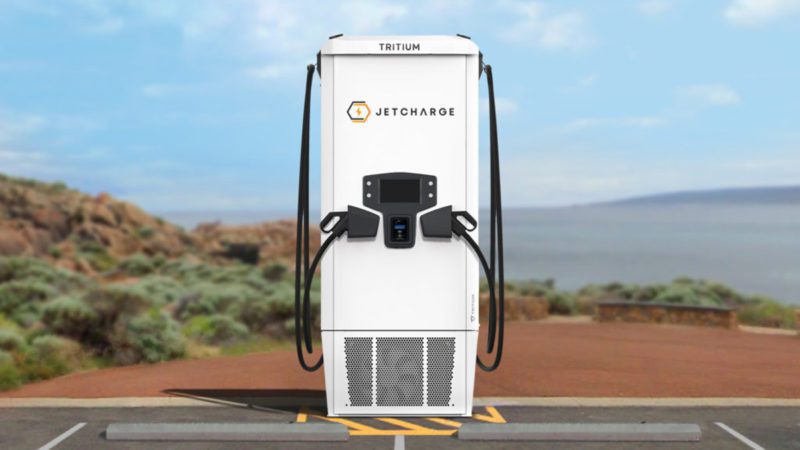Electric vehicle (EV) charger provider Jet Charge has inked a second deal for units to fill in the statewide network planned by the WA government.
Having inked a deal with Finnish Kempower in early September, Jet Charge this time around has signed up Brisbane’s Tritium.
The deal will see Tritium supply its 75kW modular EV chargers for a number of locations along Western Australia’s 7,000km network. The units will be manufactured at Tritium’s Brisbane factory, which has a 5,000 unit a year capacity.
The $43.5 million EV charging network is set to roll out by early 2024, from Kununurra in the state’s north to Esperance in the south and Eucla in the south-east on the South Australian border.
Both Synergy and Horizon, the energy providers for the state’s immense area, will work with the state government to implement the rollout.
The 75kW Tritium chargers will be installed in the larger area covered by Horizon Power, ruling out installation in the state’s south-east.

Jet Charge to supply EV chargers to Volkswagen
In addition to supplying EV charging hardware for the WA network, Jet Charge has also been tapped by Volkswagen Group Australia (VGA) as its official EV charging partner.
Extending to all brands within the group, the Jet Charge partnership will see it provide EV charging hardware and related services for Audi, Volkswagen Commercial Vehicles, Skoda and Cupra brands.
Spanish-based Cupra, a newcomer to Australia, is on the cusp of introducing the Cupra Born, an edgy and smart-looking electric hatchback that is expected to be priced around the $60,000 mark. Volkswagen is also readying to launch the ID.4 in Australia.
“Already this year VGA has confirmed production of new BEVs across our brands with the strong likelihood of another to come shortly,” said VGA managing director Paul Sansom in a statement. “Our company’s quest to become Australia’s foremost provider of zero and low emission vehicles is boosted significantly by its new association with Jet Charge.”
Tritium manufacturing ramps off record sales
Tritium recently reported a massive backlog of orders brought on by record sales in the 2021-2022 financial year. On Friday, it said that sales had grown 232% up from the previous financial year, wirth $203 million.
In addition to its Brisbane-based facility, it has also opened a manufacturing base in Tennessee in tandem with a listing on the tech-focussed Nasdaq.
It says it is currently ramping up production at its Tennessaa factory, and by the end of 2023 says it will be making 28,000 units a year in total.
This article has been updated to clarify Tritium is not supplying 98 chargers, but only some chargers to certain locations.

Bridie Schmidt is associate editor for The Driven, sister site of Renew Economy. She has been writing about electric vehicles since 2018, and has a keen interest in the role that zero-emissions transport has to play in sustainability. She has participated in podcasts such as Download This Show with Marc Fennell and Shirtloads of Science with Karl Kruszelnicki and is co-organiser of the Northern Rivers Electric Vehicle Forum. Bridie also owns a Tesla Model Y and has it available for hire on evee.com.au.

